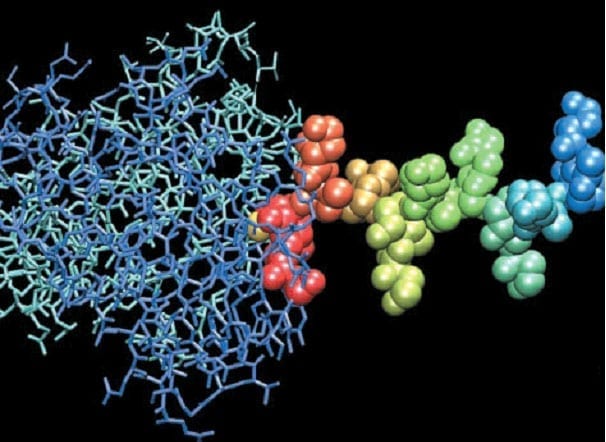3D Model Monoclonal Antibodies. Credit: Kovac/NIH
The United Kingdom’s Medical Research Council (MRC) and global pharmaceutical company UCB have launched a collaboration that will provide scientists with access to cutting-edge technologies to discover new monoclonal antibodies.
These antibodies will enable scientists to research the mechanisms of human disease, identify novel therapeutic opportunities, and may provide the initial starting points for new treatments.
Under the joint initiative, MRC funded academic scientists will work in collaboration with UCB scientists to access and apply the company’s novel high-throughput antibody screening capabilities in support of research directed to biological targets which are implicated in human diseases.
MRC funded scientists will be able to efficiently sample the immune repertoire, potentially assessing over a billion antibody-producing B-cells, to find those rare cells generating antibody with the exact functional properties required to inhibit the relevant disease process.
“This exciting new partnership with UCB will bring together some of the best UK scientists with UK-based industry to drive forward the quest to discover new treatments,” said Dr Chris Watkins, Director of Translational Research and Industry at the MRC. “Through access to cutting edge technologies such as these, the UK research community can build on its strengths to accelerate research that will bring benefit to patients.”
It’s anticipated that this joint initiative will initially run for a period of three years, with up to five projects per year being selected for support by UCB and the MRC. UK-based academics will be able to submit research proposals to the MRC later this year and these will be independently assessed to select the best proposals.


